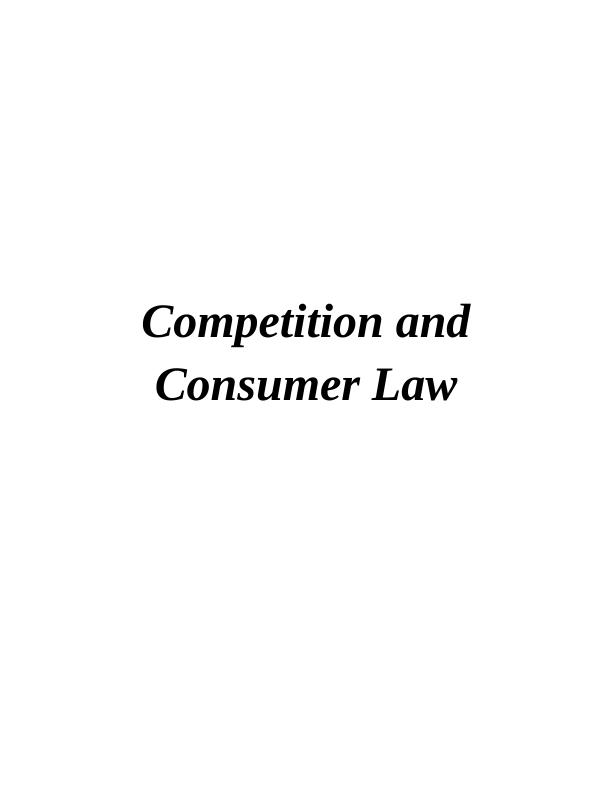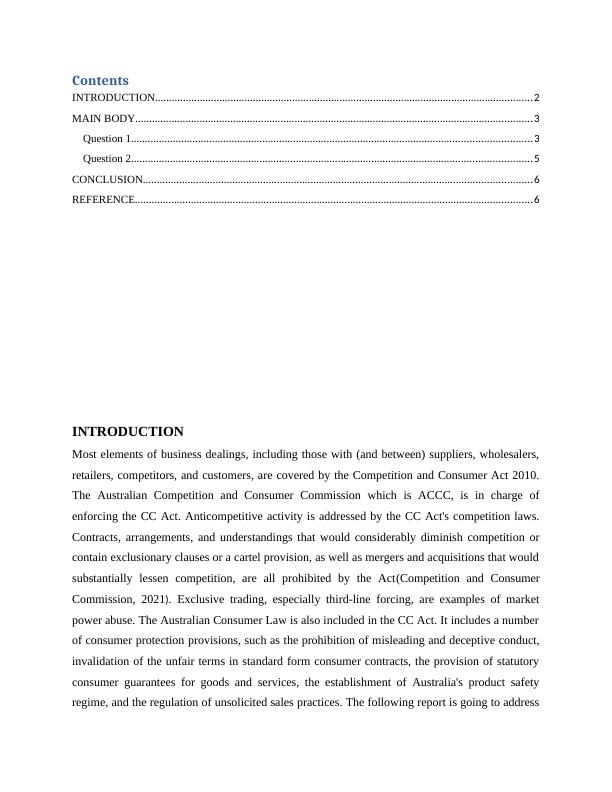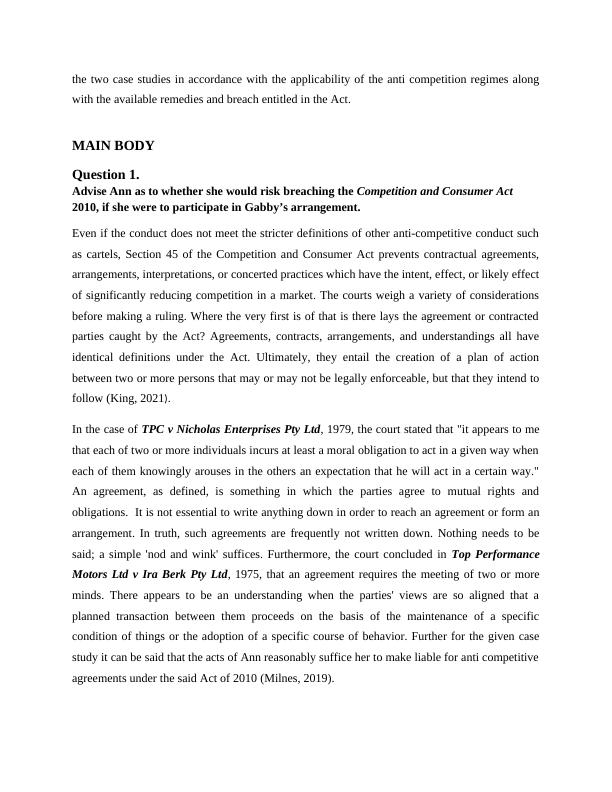Competition and Consumer Law: Applicability, Remedies and Penalties
9 Pages2401 Words470 Views
Added on 2023-06-10
About This Document
This report discusses the Competition and Consumer Act 2010, its applicability to anti-competitive activities, available remedies and penalties for breach. It also provides advice on challenging discounting and legal obligations under the Act.
Competition and Consumer Law: Applicability, Remedies and Penalties
Added on 2023-06-10
ShareRelated Documents
End of preview
Want to access all the pages? Upload your documents or become a member.
Conflict of Interest and Principles of Global Convention
|7
|1944
|390
Cartel Conduct and Prohibited Anti-Competitive Practices: Analysis under the Competition and Consumer Act
|8
|2495
|284
Project Report on Australian Contract Law or Rules
|9
|1812
|272
Claiming Damages for Financial Losses
|10
|2826
|21
Introduction to Business Law - ILAC Question and Short Response
|4
|877
|339
Corporate Law Sandalwood Pty Ltd
|6
|988
|13



